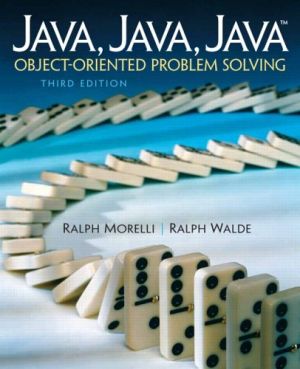Java, Java, Java
Object-Oriented Problem Solving
by Ralph Morelli, Ralph Walde
DescriptionTable of ContentsDetailsHashtagsReport an issue
The 3rd edition retains many of the features of the first two editions, including:
- Early Introduction of Objects;
- Emphasis on Object Oriented Design (OOD);
- Unified Modeling Language (UML) Diagrams;
- Self-study Exercises with Answers;
- Programming, Debugging, and Design Tips;
- From the Java Library Sections;
- Object-Oriented Design Sections;
- End-of-Chapter Exercises;
- Companion Web Site, with Power Points and other Resources. 






Book Description
Functional and flexible, this guide takes an objects-first approach to Java programming and problem using games and puzzles. Offers independent introductions to both a command-line interface and a graphical user interface (GUI). Features coverage of Unified Modeling Language (UML), the industry-standard, object-oriented design tool. Illustrates key aspects of Java with a collection of game and puzzle examples. For introductory computer programming students or professionals interested in learning Java.The 3rd edition retains many of the features of the first two editions, including:
- Early Introduction of Objects;
- Emphasis on Object Oriented Design (OOD);
- Unified Modeling Language (UML) Diagrams;
- Self-study Exercises with Answers;
- Programming, Debugging, and Design Tips;
- From the Java Library Sections;
- Object-Oriented Design Sections;
- End-of-Chapter Exercises;
- Companion Web Site, with Power Points and other Resources.
This open book is licensed under a Creative Commons License (CC BY). You can download Java, Java, Java ebook for free in PDF format (8.8 MB).
Table of Contents
Chapter 0
Computers, Objects, and Java
Chapter 1
Java Program Design and Development
Chapter 2
Objects: Using, Creating, and Defining
Chapter 3
Methods: Communicating with Objects
Chapter 4
Input/Output: Designing the User Interface
Chapter 5
Java Data and Operators
Chapter 6
Control Structures
Chapter 7
Strings and String Processing
Chapter 8
Inheritance and Polymorphism
Chapter 9
Arrays and Array Processing
Chapter 10
Exceptions: When Things Go Wrong
Chapter 11
Files and Streams: Input/Output Techniques
Chapter 12
Recursive Problem Solving
Chapter 13
Graphical User Interfaces
Chapter 14
Threads and Concurrent Programming
Chapter 15
Sockets and Networking
Chapter 16
Data Structures: Lists, Stacks, and Queues
Appendix A
Coding Conventions
Appendix B
The Java Development Kit
Appendix C
The ASCII and Unicode Character Sets
Appendix D
Java Keywords
Appendix E
Operator Precedence Hierarchy
Appendix F
Java Inner Classes
Appendix G
Java Autoboxing and Enumeration
Appendix H
Java and UML Resources
Book Details
Title
Java, Java, Java
Subject
Computer Science
Publisher
Prentice Hall
Published
2017
Pages
856
Edition
3
Language
English
ISBN13 Digital
9780131474345
ISBN10 Digital
0131474340
PDF Size
8.8 MB
License

Related Books
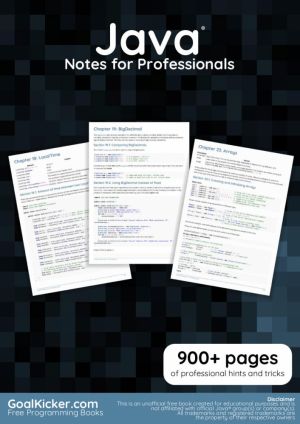
The Java Notes for Professionals book is compiled from Stack Overflow Documentation, the content is written by the beautiful people at Stack Overflow....
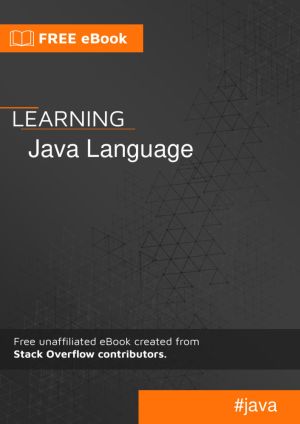
Java is a class-based, object-oriented programming language that is designed to have as few implementation dependencies as possible. It is an unofficial and free Java ebook created for educational purposes. All the content is extracted from Stack Overflow Documentation, which is written by many hardworking individuals at Stack Overflow....
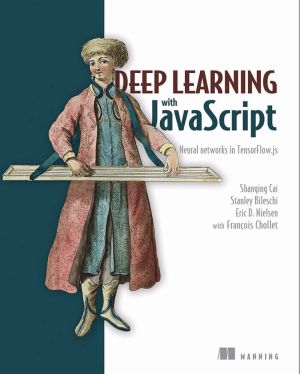
Deep learning has transformed the fields of computer vision, image processing, and natural language applications. Thanks to TensorFlow.js, now JavaScript developers can build deep learning apps without relying on Python or R. Deep Learning with JavaScript shows developers how they can bring DL technology to the web. Written by the main authors of t...
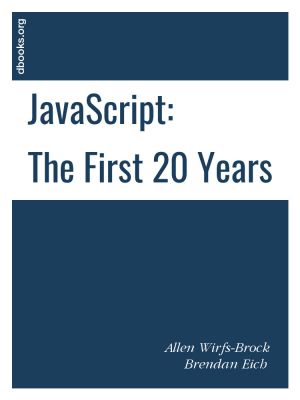
How a sidekick scripting language for Java, created at Netscape in a ten-day hack, ships first as a de facto Web standard and eventually becomes the world's most widely used programming language. This paper tells the story of the creation, design, evolution, and standardization of the JavaScript language over the period of 1995-2015. But the s...
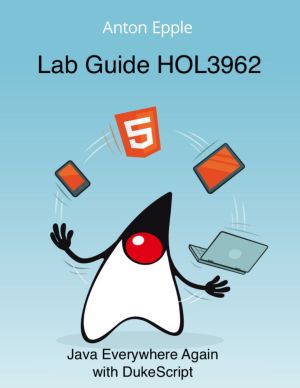
For many years, Java Swing enabled developers to write applications that could run on any operating system. That all came to an end with the arrival of smart phones, tablets, and embedded computers.
In the enterprise, the desktop dominated for many years. In the meantime, however, almost every IT project includes plans for a future where the app...
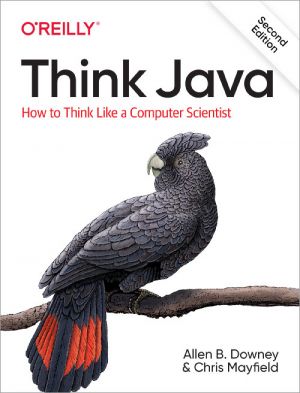
Think Java is a hands-on introduction to computer science and programming used by many universities and high schools around the world. Its conciseness, emphasis on vocabulary, and informal tone make it particularly appealing for readers with little or no experience. The book starts with the most basic programming concepts and gradually works its wa...

